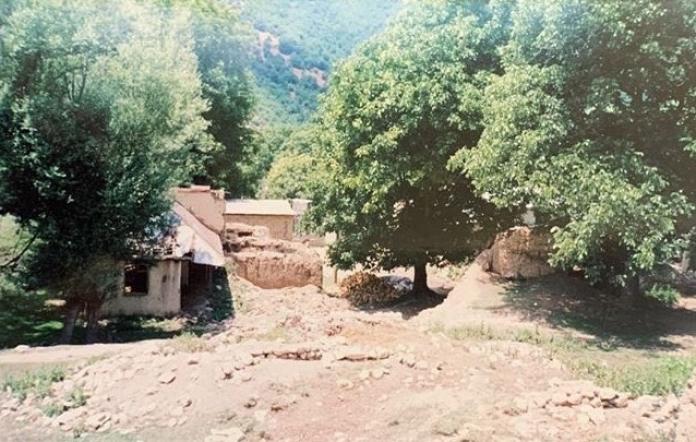Source: www.kaleme.com
We urgently request that the Iranian government and the Judiciary of the Islamic Republic end the brutal confiscation of Baha’i property throughout the country and impartially attend to the grievances of the Baha’is and other religious minorities in Iran related to the persecution, animosity and insults to which they are subjected.
 Abstract: Human rights are the Covenant of the Righteous of the new world, which give people equal rights regardless of color, race, or religious beliefs. The violation of the right of Iranian Baha’is to their own property is based on a misinterpretation, in order to force the application of Article 49 of the Constitution of the Islamic Republic; however, the personal property of Baha’is does not apply or match any of the criteria listed in this article, such as overcharging, usurpation, bribery, embezzlement, and so on.
Abstract: Human rights are the Covenant of the Righteous of the new world, which give people equal rights regardless of color, race, or religious beliefs. The violation of the right of Iranian Baha’is to their own property is based on a misinterpretation, in order to force the application of Article 49 of the Constitution of the Islamic Republic; however, the personal property of Baha’is does not apply or match any of the criteria listed in this article, such as overcharging, usurpation, bribery, embezzlement, and so on.
The Collective Statement by Iranian Religious Modernists Condemning Confiscation of Baha’i Property:
There is credible and worrying news coming from Iran that the final confiscation order of the property and agricultural lands of 27 families of Iranian Baha’i compatriots in the village of Ayvel near the city of Sari has been issued by the Court of Mazandaran Province, solely because their owners were Baha’is. About eleven years ago, also, the houses of 50 families of Baha’i villagers in the very same village were destroyed.
Unfortunately, not only have Baha’i grievances over the demolition of their homes in this village gone unheeded over the past decade, but now their property and farmland have also been officially confiscated. The Ayvel Baha’is are among the oldest Baha’i communities in Iran, and efforts to dismantle the Baha’i community in this village are the latest in a series of efforts by the Iranian government to systematically eliminate religious diversity in the country.
The confiscation of Baha’i property because of their beliefs is a clear example of religious discrimination and religious apartheid, and is not only a blatantly immoral act, contrary to human rights standards, contrary to national security, and unconstitutional, but incompatible with the humanizing teachings of Islam. The Holy Prophet of Islam was a member of the “Covenant of the Righteous” even before his prophethood; this was an organic and trans-tribal covenant that sought to assert the rights of individuals without regard to tribal ties.
Human rights are the Covenant of the Righteous of the new world; Which gives people equal rights regardless of color, race, or religious beliefs. The violation of the rights of the Iranian Baha’is to their own property is based on misinterpretation to force the execution of Article 49 of the Constitution of the Islamic Republic; However, the personal property of the Baha’is does not apply or match any of the criteria listed in this article, such as overcharging, usurpation, bribery, embezzlement, and so on. Government’s attempts to give an appearance of legitimacy to the confiscation of the Baha’i property are of no use to those who are aware and informed of their rights. Unofficial reports from Iran also indicate that the confiscation of property and agricultural land of Ayvel Baha’is, unfortunately, is the beginning of a new wave of government’s pounce to confiscate Baha’i property and land in the cities and villages of the country.
We, a group of Iranian Religious Modernists, strongly condemn the confiscation of the property of our long suffering and hardworking Baha’i brothers and sisters in Iran. We urgently request that the Iranian government, and especially the judiciary of the Islamic Republic, end the brutal confiscation of Baha’i property throughout the country, and impartially attend to the grievances of the Baha’is and other religious minorities in Iran related to the persecution, animosity and insult to which they are subjected.
“Those who believe and do not dishonor their belief with atrocities, sanctuary is theirs, those are the true guided ones.” (Al-An’am: 82)
Hassan Yousefi Eshkevari,
Mohammad Javad Akbarin,
Mohammad Borghei,
Ahmad Alavi,
Soroush Dabbagh,
Hossein Kamali,
Ali Tahmasebi,
Yaser Mirdamadi,
Dariush Mohammadpour,
Reza Alijani,
Memdi Momken,
Sedigheh Vasghami,
Hasan Fereshtian,
Abdol-Ali Bazargan
Leave a Reply